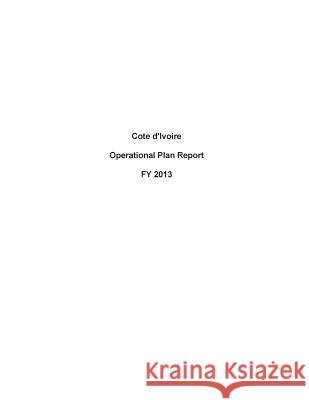Cote d'Ivoire Operational Plan Report FY 2013 » książka
Cote d'Ivoire Operational Plan Report FY 2013
ISBN-13: 9781503193079 / Angielski / Miękka / 2014 / 342 str.
Almost two years after the Ouattara administration came into office, Cote d'Ivoire is moving toward stability and growth, putting behind it more than 10 years of civil unrest that divided the country, impoverished the population, decimated health and social services. President Alassane Ouattara's administration achieved a number of early successes in organizing national legislative elections, originating a new national development strategy, and reinvigorating the investment climate. The government's efforts to foster economic growth, increase foreign investment, and improve infrastructure are producing results. Following a contraction of 4.7% in 2011, GDP rebounded remarkably, with growth of 8.5% in 2012 and initial IMF forecasts anticipating 8% growth in 2013. Only limited progress, however, has been achieved on national reconciliation efforts, accountability for crimes committed during the crisis years, and security sector reform. About half the population of 22 million survives on less than $2 a day; a similar proportion lives in rural areas with high illiteracy rates and poor access to services. According to the National Poverty Reduction Strategy (2009), the poverty rate worsened from 10% in 1985 to 48.9% in 2008. Transparency International ranked Cote d'Ivoire 130 out of 174 countries in its 2012 Corruption Perception report. Though there have been some indications of progress (CI ranked 154 of 182 countries in 2011) during the Ouattara administration, corruption remains endemic, and anti-corruption measures are coming up against entrenched systemic practices that hinder ambitious development plans. The provision of basic services, including health and HIV/AIDS services, continues to challenge the government, especially outside of Abidjan."
Zawartość książki może nie spełniać oczekiwań – reklamacje nie obejmują treści, która mogła nie być redakcyjnie ani merytorycznie opracowana.











